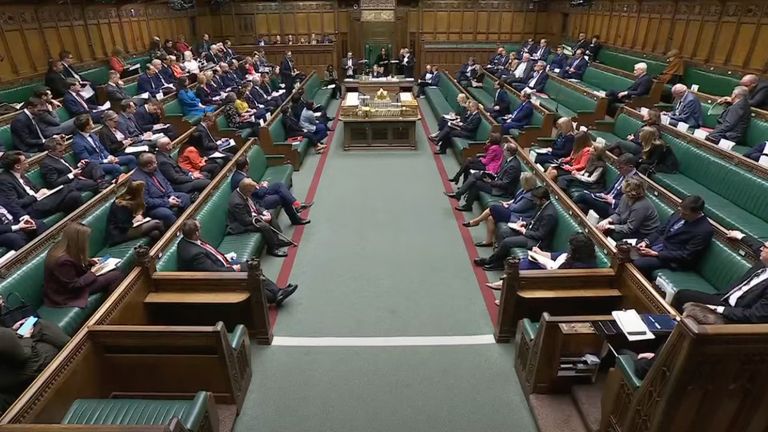The Renters’ Reform Bill is nearing the end of its legislative journey after the House of Lords rejected several key amendments. The Bill will now return to the House of Commons for final approval before receiving Royal Assent.
Among the amendments rejected were proposals to extend the student possession ground to one- and two-bedroom properties, and to shorten the reletting period following a property sale from 12 months to six.
A further amendment to allow landlords to take a separate pet deposit was also voted down. However, ministers indicated the issue remains under review and suggested the Tenant Fees Act could be amended in future if sufficient evidence supports the change.
These proposals had previously been rejected by MPs and were reintroduced in the Lords before being defeated again.
Another amendment, which would have introduced a new possession ground allowing landlords to reclaim a property to house a carer, was also rejected.
The Bill is now expected to receive Royal Assent shortly, at which point it will pass into law. Further details on its implementation will be outlined through secondary legislation.
William Reeve, CEO at Goodlord, commented: “Despite rumours that they would dig their heels in, the House of Lords has clearly run out of steam. Once again, demand amongst the Lords for both a pet deposit scheme and changes to Ground 4A sparked much debate, but ultimately the Government won out and these amendments won’t become part of the final bill. With all votes for the outstanding amendments going in the Government’s direction, the process of ‘ping pong’ comes to an end and the bill will move towards Royal Assent following final approval in the Commons.
“This brings to a close years of speculation, u-turns and false starts. We are now hurtling towards these new rules becoming a reality. Worryingly, a large proportion of agents still aren’t ready for it: according to our latest industry analysis, sole operator agents are the least ready, with just 4% describing themselves as “very prepared”. Only around a quarter of agencies with 2-10 staff members feel well prepared for the changes, while less than half (47%) of agencies with 11 or more staff members say they are completely ready. But they can no longer bury their heads in the sand – the rubber is truly about to hit the road.”
David Smith, property litigation partner at Spector Constant & Williams, is particularly disappointed that the government has seen off a renewed bid to ensure tenants keeping pets pay an extra deposit to cover any damage to the rented property.

He commented: “The government’s decision to reject the proposal for a separate pet damage deposit is disappointing but unsurprising. The original Lords amendment recognised a genuine gap in protection for landlords that has now been left unaddressed.
“While the drive to make renting more pet-friendly is understandable, removing both the dedicated insurance requirement and the option of an additional deposit leaves landlords exposed to potential losses that cannot easily be recovered under the existing five-week cap.
“A modest, refundable pet deposit would have struck a sensible balance between encouraging responsible pet ownership and protecting property owners from avoidable risk. As it stands, landlords will need to rely on clear tenancy agreements and robust referencing to manage the additional liabilities that pets inevitably bring.”
Any further proposed amendments will only prolong parliamentary ‘ping-pong’, according to Greg Tsuman, managing director for lettings at Martyn Gerrard Estate Agents.
He commented: “Whatever was debated in the Lords was little more than political posturing and will not deliver meaningful change to the Bill given the overwhelming Commons majority. By delaying the inevitable, the Lords know they are helping no one.
“While the Bill undoubtedly falls short of striking a fair balance and will likely make life harder for tenants through unintended – or perhaps otherwise – consequences, we must now pivot to preparation. The focus must shift to educating both landlords and tenants so they can adapt ahead of Royal Assent, which could come within weeks, and a full rollout, which is likely to happen by April next year.
“The key challenge will be preventing landlords from selling en masse, a scenario which could trigger unprecedented upward pressure on already record-high rents. If landlords continue to sell without supply being replaced, rents will only move in one direction – up. Managing property is no longer a passive investment; it’s a full-time job. With regulation tightening and compliance becoming more complex, landlords will need to quickly upskill or turn to qualified, professional agents to manage their portfolios effectively.”
Tsuman believes that the government appears to be attempting to legislate its way out of a chronic housing demand crisis, rather than addressing the root cause.
He continued: “The only sustainable solution lies in building more homes and encouraging greater investment in Build-to-Rent properties. Yet there is little evidence that the current government will meet its housebuilding targets – let alone deliver enough rental homes to meet the soaring demand.
“Many organisations and housing bodies are lobbying for LHA rates to be unfrozen and linked permanently to local rents, but while this would provide much-needed relief for renters, it would also place additional strain on an already stretched welfare budget. Under the Planning and Infrastructure Bill, amendments have been proposed to grant ministers new powers to issue ‘holding directions’ and block councils from refusing planning permission. It’s a welcome intention, but whether it delivers results on the ground remains to be seen.
“The Bill itself is not the real challenge – taxation is. Most of the core reforms, including the removal of Section 21, were already pledged by the previous government and are consistent with earlier versions of the Renters Reform Bill under the Levelling Up agenda. Professional landlords should not be surprised or feel caught off guard; this has been on the horizon for some time.
“What poses the greater risk now are the tax changes on the horizon – these will determine whether landlords stay in the market or exit, and whether the rental sector can remain stable through the transition ahead.”
Agents must prepare as Renters’ Bill nears Royal Assent








